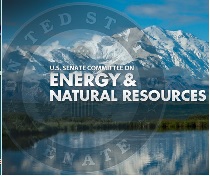CAP Column Calls on Congress to Invest Now in Climate Resilient Infrastructure to Reduce Disaster Costs
Washington, D.C. – March 13, 2015 – (RealEstateRama) — As leadership in Congress continues the process of putting together a federal budget, the impacts of climate change on the nation’s aging infrastructure must not be ignored. In a column released by the Center for American Progress today, climate experts urge Congress to take the fiscally responsible steps of investing in cutting carbon pollution and improving the nation’s roads, bridges, rail lines, and other infrastructure now.
“As the United States grapples with the effects of climate change, the aging infrastructure that we rely on will be among the hardest hit,” said Cathleen Kelly, CAP senior fellow and co-author of the column. “Our infrastructure is already woefully in need of improvement, particularly in low-income areas, and it will strain further in the face of climate change related extreme weather events that we have already seen begin. The fiscally responsible thing for Congress to do is invest now in building resilient infrastructure and communities before cataclysmic weather events force us to spend much more on disaster recovery down the road.”
In 2013, the American Society of Civil Engineers gave America’s infrastructure a D+ rating and recommended increasing investment in infrastructure designed to “withstand both natural and man-made hazards.” They suggested using resilient infrastructure designs and sustainable practices to ensure the infrastructure will last for generations. That same year, the Government Accountability Office listed climate change as a top risk to federal operations, assets, and programs and earlier this year put the government’s exposure to climate change at the top of its list of high risks. President Barack Obama’s FY 2016 budget called for in the ballpark of $90 billion to reduce disaster costs and build infrastructure resilience, and earlier this year, the president established a new federal flood risk standard to ensure that federal agencies are investing in long-lasting infrastructure.
Click here to read the column.
For more information on this topic or to speak with an expert, contact Tom Caiazza at or 202.481.7141.
To speak with our experts on this topic, please contact:
Print: Allison Preiss (economy, education, poverty)
202.478.6331 or
Print: Tom Caiazza (foreign policy, health care, energy and environment, LGBT issues, gun-violence prevention)
202.481.7141 or
Print: Chelsea Kiene (women’s issues, Legal Progress, Half in Ten Education Fund)
202.478.5328 or
Spanish-language and ethnic media: Tanya Arditi (immigration, race and ethnicity)
202.741.6258 or
TV: Rachel Rosen
202.483.2675 or
Radio: Chelsea Kiene
202.478.5328 or
Contact: Tom Caiazza
Phone: 202.481.7141
Email:














